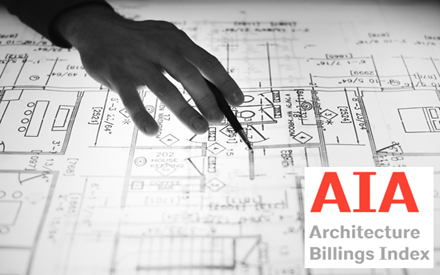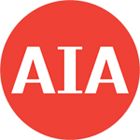After 20 Months, AIA's Architecture Billings Index Shows Positive Signs
 Washington, DC – After 20 months of declining billings, the AIA/Deltek Architecture Billings Index (ABI) score for October was 50.3. This score indicates a balance between the number of firms experiencing a decrease
in billings and those seeing an increase.
Washington, DC – After 20 months of declining billings, the AIA/Deltek Architecture Billings Index (ABI) score for October was 50.3. This score indicates a balance between the number of firms experiencing a decrease
in billings and those seeing an increase.
Although there was an increase in inquiries for new projects in October, clients are still cautious about moving forward. The value of new design contracts continued to decline for the seventh month in a row.
“Billings finally stabilized this month, and firms are feeling more optimistic about revenue projections for 2025,” said AIA Chief Economist, Kermit Baker, Hon. AIA, PhD. “Overall, 41 percent of responding firm leaders expect to see
net revenue growth from 2024 to 2025, with 32 percent projecting growth in the 5 percent to 9 percent range.”
Key ABI highlights for October include:
• Regional averages: South (52.1); West (47.6); Midwest (46.9); Northeast (45.6)
• Sector index breakdown: institutional (50.5); mixed practice
(firms that do not have at least half of their billings in any one other category) (48.0); commercial/industrial (47.0); multifamily residential (45.6)
• Project inquiries index: 54.1
• Design contracts index: 45.3
The
regional and sector categories are calculated as three-month moving
averages and may not always average out to the national score.
Visit AIA’s website for
detailed information about this, and past billing index reports.
About The American Institute Of Architects
 For over 150 years, members of the American Institute of Architects have worked with each other and their communities to create more valuable, healthy, secure, and sustainable buildings and cityscapes. Members adhere to a code of ethics and professional conduct to ensure the highest standards in professional practice. Embracing their responsibility to serve society, AIA members engage civic and government leaders and the public in helping find needed solutions to pressing issues facing our communities, institutions, nation and world. For more information, visit www.aia.org.
For over 150 years, members of the American Institute of Architects have worked with each other and their communities to create more valuable, healthy, secure, and sustainable buildings and cityscapes. Members adhere to a code of ethics and professional conduct to ensure the highest standards in professional practice. Embracing their responsibility to serve society, AIA members engage civic and government leaders and the public in helping find needed solutions to pressing issues facing our communities, institutions, nation and world. For more information, visit www.aia.org.